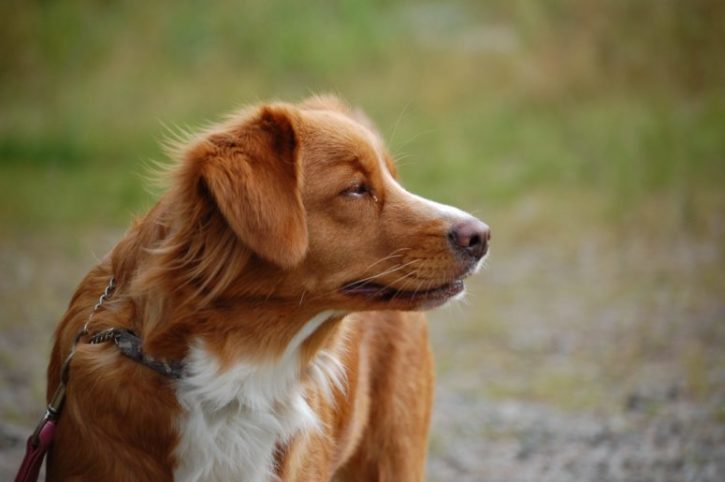
To Eat or Not to Eat
Do you like to feed your pets table scraps? Do you know which foods are safe and which ones are dangerous? Continue reading below for some of the most common toxic foods to pets.

Toxic Component
- theobromine
- caffeine
Signs
- vomiting and diarrhea
- stomach cramps
- decreased breathing and heart rate
- tremors or seizures
- death
Chocolate toxicity is very dependent on the amount, type of chocolate, and the pet’s weight. White chocolate has the least amount of theobromine and caffeine, so it is less likely to be toxic (but it can still be dangerous). Dark chocolate or baking cocoa has the highest concentration of theobromine and caffeine so even small amounts can be dangerous.
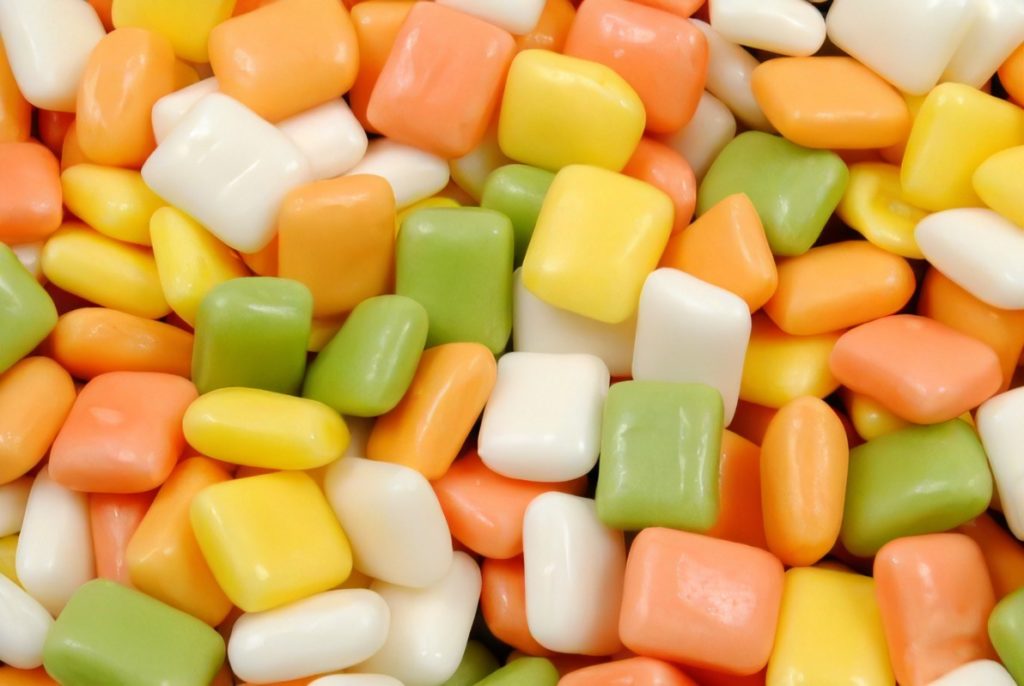
Toxic Component
xylitol
Signs
- vomiting and diarrhea
- inappetence
- stomach pain
- tremors and seizures
- weakness
- death
Xylitol is an artificial sweetener that is found in many different foods/items (gum, toothpaste, candy, and some diet foods). Xylitol causes low blood glucose (sugar) in pets, and it can result in seizures and become life threatening as glucose is essential for many normal bodily functions.
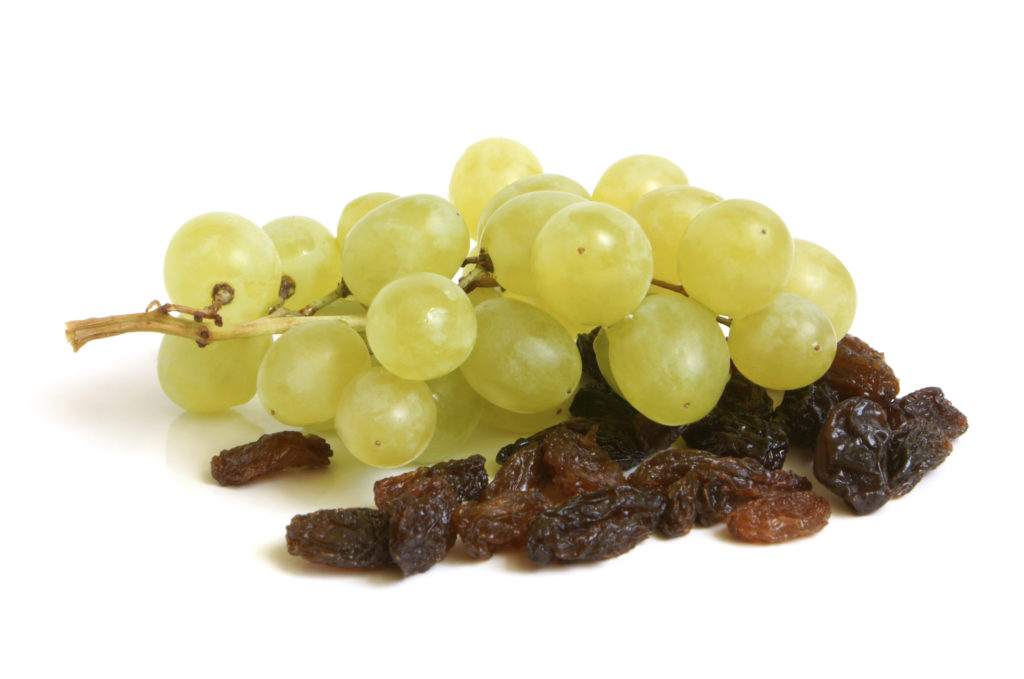
Toxic Component
suspect tartaric acid*
*The full toxic component is not quite understood yet.
Signs
- vomiting and diarrhea
- inappetence
- lethargy
- decreased urination (due to kidney failure)
- collapse and death
Grapes and raisins are extremely toxic to dogs, and the scary thing is we don’t always know how much is too much. True signs of illness may not even happen until days after your pet eats the grape or raisin, so even if they are not sick right away let your veterinarian know immediately.
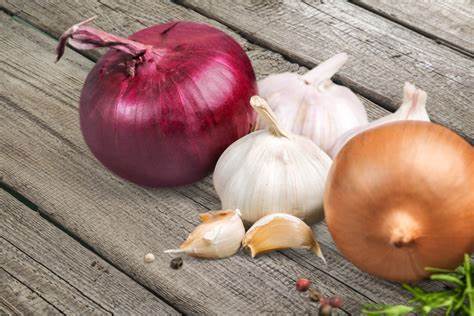
Toxic Component
propyl disulphides thiosulphides
Signs
- hemolysis (destruction of red blood cells)
- vomiting and diarrhea
- abdominal pain
- depression and lethargy
- collapse
These are two members of the Allium species of plants that are extremely toxic to pets. The compounds in these plants cause hemolysis (which is the breakdown of red blood cells). They can also prevent blood clotting. Both of these can lead to severe blood loss and potentially death.
Severe damage is dependent on the amount of onions or garlic consumed, but it is a good idea to avoid any amount of garlic and onions for your pets.
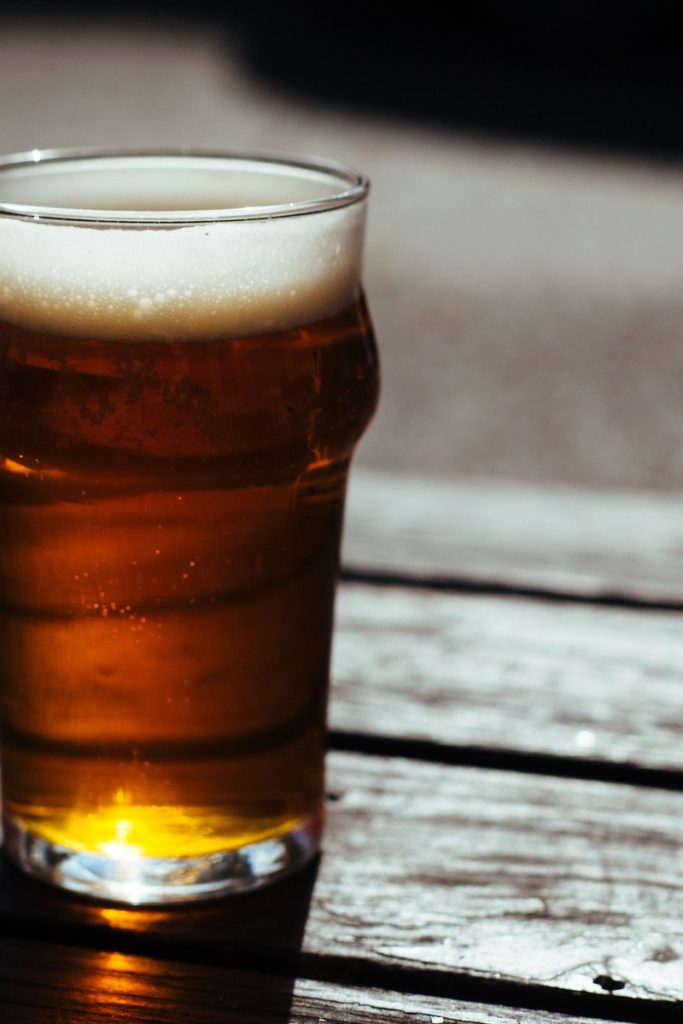
Toxic Component
ethanol
isopropanol
methanol
Signs
- depression and behavioral changes
- Incoordination or seizures
- decreased breathing and heart rates
- low blood pressure
- vomiting and abdominal pain
While it may be fun to share a drink with your partner or friends, alcohol is very toxic for pets. The ethanol, isopropanol, or methanol in alcohol are the troublemakers. Alcohol acts as a depressant.

Toxic Component
ethanol
bloat*
*While not a toxin per say, this is a significant concern with yeast ingestion.
Signs
- vomiting, retching, and abdominal distention
- increased heart and abnormal rhythms
- incoordination
- coma or seizures
- stomach bloat
Raw yeast dough can be dangerous to pets as the moisture in the stomach combined with the body heat can enable the yeast to develop. Alcohol is produced during the rising process, and the dough can easily expand to several times its original size.
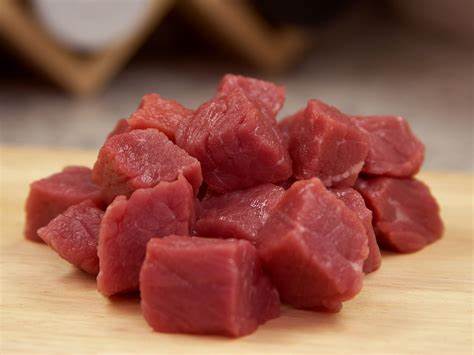
Toxic Component
Salmonella
E. coli
others
Signs
- vomiting and diarrhea
- dehydration
Raw food (when not processed correctly) can be dangerous to pets the same way it is dangerous to humans: bacterial contamination.
If you want to feed raw food to your pet, make sure you are taking precautions to process the food correctly to make sure it is safe to eat. Otherwise, you can always cook the food to decrease the risk.
This is by no means a complete list of toxic or dangerous foods. If you are ever concerned about something your pet ate, contact your veterinarian or call the ASPCA’s Animal Poison Control Center at (888) 426-4435 OR the Pet Poison Helpline at (855) 764-7661. There may be a fee associated with the call.
Now It’s Your Turn
Test your knowledge with this quiz to be entered into a drawing for a gift bag of goodies.
